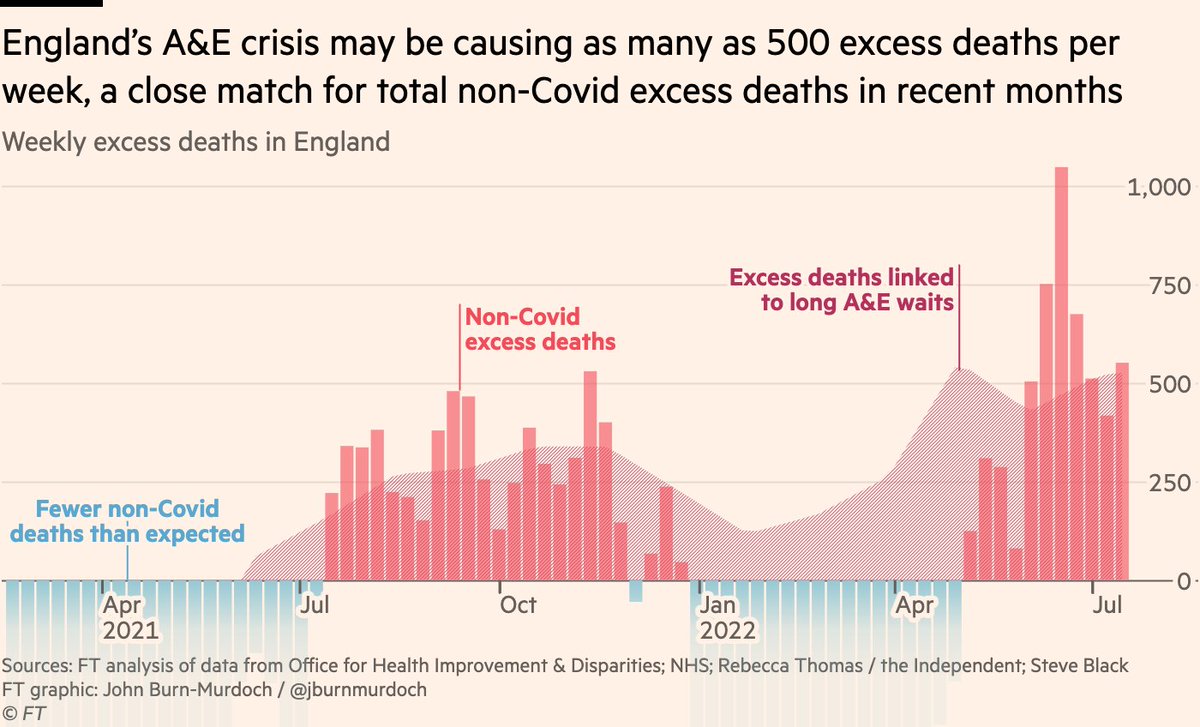
NEW: income inequality in US & UK is so wide that while the richest are very well off, the poorest have a worse standard of living than the poorest in countries like Slovenia ft.com/content/ef2654…
Essentially, US & UK are poor societies with some very rich people.
A thread:
Essentially, US & UK are poor societies with some very rich people.
A thread:
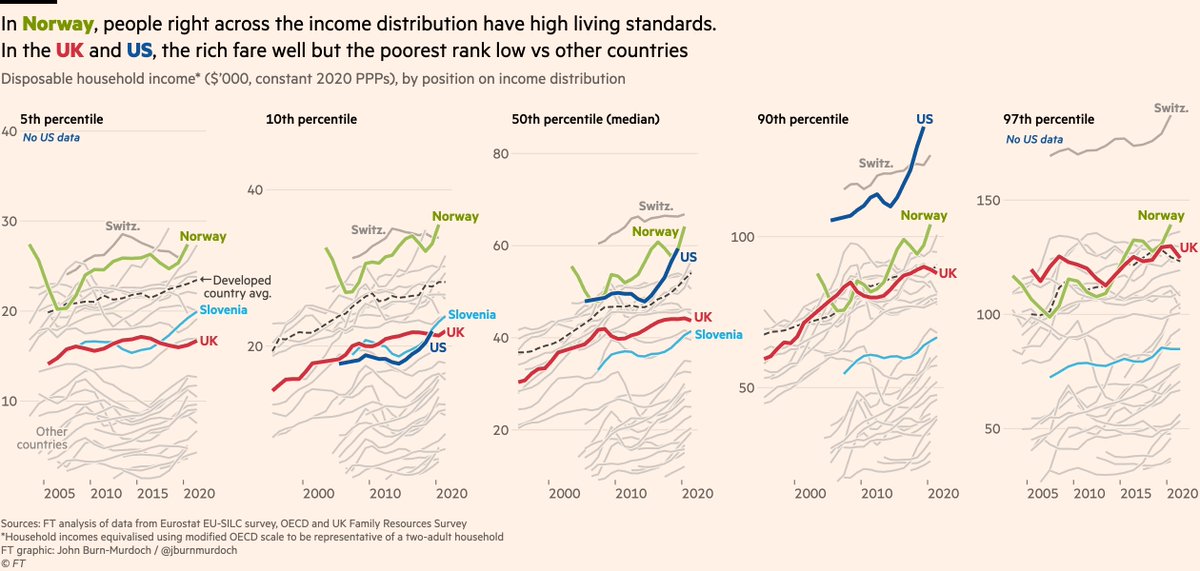
In most developed countries, the distribution of income is ~relatively~ equal, with top 10% earning about 3x as much as bottom 10%.
That means the same *relative* standard of living broadly persists across the income distribution.
That means the same *relative* standard of living broadly persists across the income distribution.
That looks like this:
Norway’s richest have some of highest living standards of rich people in any country, while Norway’s poorest also fare better than poor people anywhere.
French, Dutch, Austrians, Germans etc also all rank among best living standards whether rich or poor.
Norway’s richest have some of highest living standards of rich people in any country, while Norway’s poorest also fare better than poor people anywhere.
French, Dutch, Austrians, Germans etc also all rank among best living standards whether rich or poor.

But the income distributions in the UK and particularly the US are much less equal. In the UK, the top 10% earn almost 5x the bottom, and in the US it’s more than 6x.
That creates a steep gradient from top to bottom.
That creates a steep gradient from top to bottom.
So instead of those lines being near the top from the poorest to the richest, they’re nice and high for the rich, but much lower for the poor.
Brits and Americans in the bottom 10% have a *far* lower standard of living than the poor in the average developed country.
Brits and Americans in the bottom 10% have a *far* lower standard of living than the poor in the average developed country.

The result is that while high-earners in US & UK continue to be very comfortably well off, the poorest in those same societies — perhaps in the very next neighbourhood — are scraping by with living standards that the poor in much less wealthy countries would consider rough. 
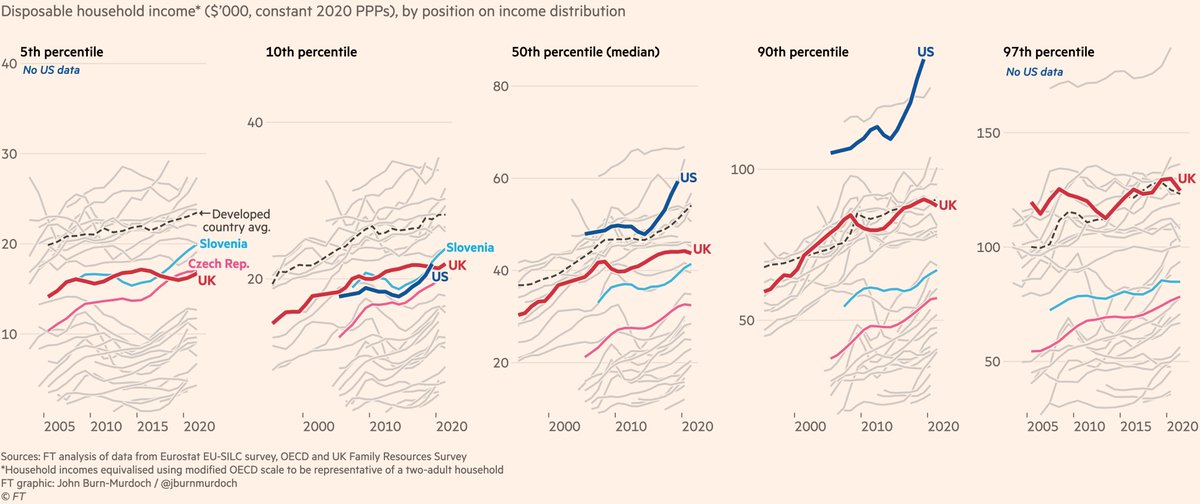
In other words: the reason the poorest Americans are so poor is the exceptionally steep inequality gradient, not a lack of overall prosperity.
There’s plenty of 💰 to go around, but too much is going to those at the top, while the safety net at the bottom is totally inadequate.
There’s plenty of 💰 to go around, but too much is going to those at the top, while the safety net at the bottom is totally inadequate.
...which brings me back to my initial claim, that Britain and the US are poor societies with some very rich people.
You can become very rich in loads of countries! The real benchmark for whether a country is a good place to live is what the bottom of the distribution looks like.
You can become very rich in loads of countries! The real benchmark for whether a country is a good place to live is what the bottom of the distribution looks like.
In Norway, Switzerland, Austria, Denmark, Netherlands, France, Germany (you get the idea), you can afford somewhere between a decent and an amazing standard of living whether you’re among poorest or richest.
In the S & UK, life is great if you’re rich, but awful if you’re poor.
In the S & UK, life is great if you’re rich, but awful if you’re poor.
And none of this is to say that reducing inequality should come at the expense of economic growth. There is no trade-off here. As you can see from the charts, general economic performance and average living standards are higher in several of these more equal countries than the US
Transpose the inequality gradient from countries like Germany, France or the Netherlands onto the US, and you would instantly lift living standards for the US poor by 💸40%💸, up to among the highest in the world.
And the richest Americans would remain among the world’s richest!
And the richest Americans would remain among the world’s richest!

So please have a read of the full story, which includes an interactive version of these charts where you can compare your own set of countries ft.com/content/ef2654…
And just to pre-empt some "yes but Norway has loads of oil wealth!" responses, that’s not the point. The point is Norwegian living standards relative to other countries are the same right across the distribution. As they are in most other countries. But not the US or UK. 
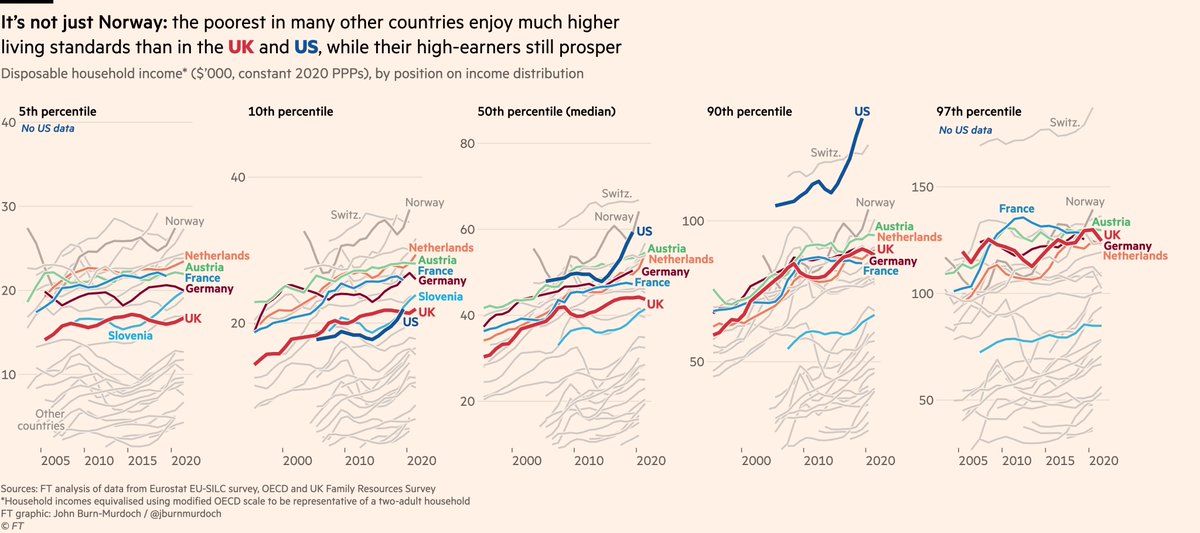
Oh, and I almost forgot: here is a custom version with Ireland highlighted, to appease the great and powerful @davidmcw 🙏🙇 
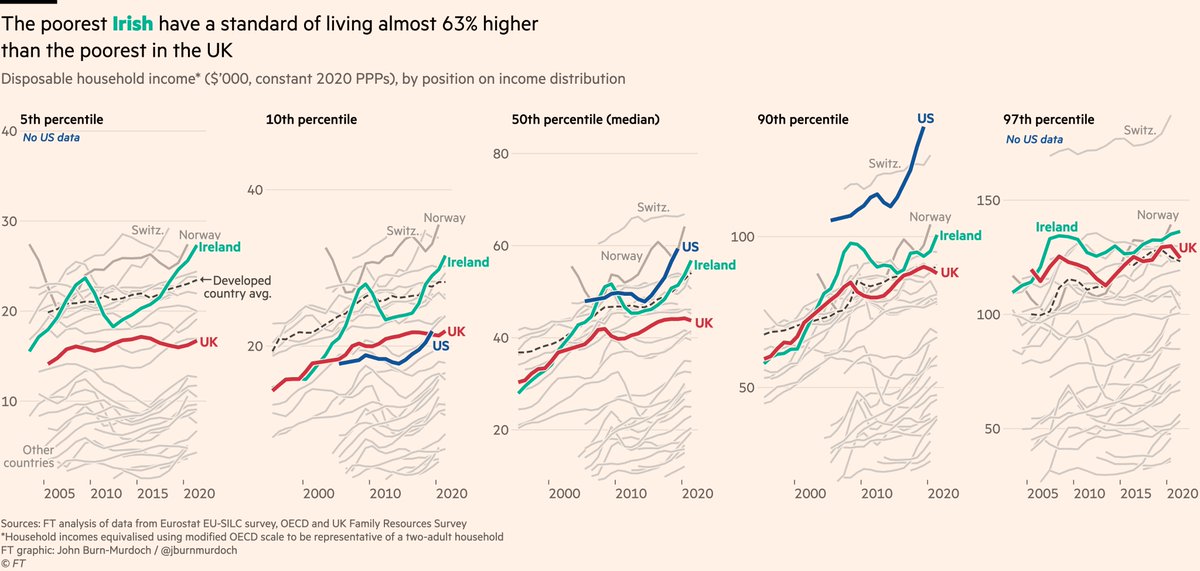
• • •
Missing some Tweet in this thread? You can try to
force a refresh



